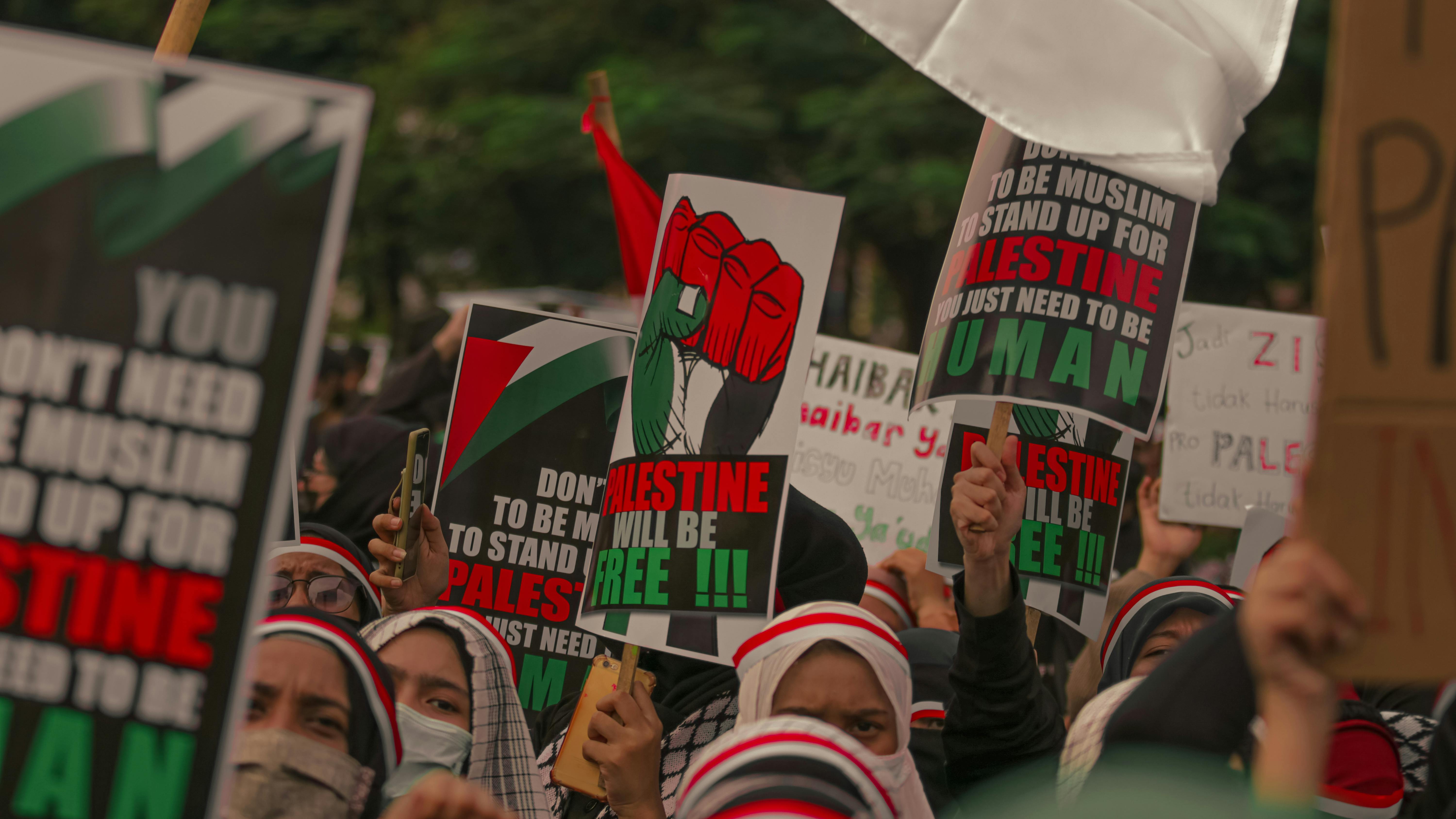Some wars are fueled by the same fire. In 1969, Asian American students at UCLA recognized that the violence occurring during the Vietnam War possessed an unsettling likeness to the bombings of Hiroshima and Nagasaki. These students wrote about these connections in Gidra, the precursory publication to the Pacific Ties Newsmagazine.
In 2024, Asian American students at UCLA recognized that current campus protests in support of Palestine carry an uncanny likeness to those that took place during the Vietnam War. These students wrote about these connections last quarter in Pacific Ties.
“Both the Vietnam War and Israel Palestine movements called attention to companies the UC affiliated with, and what message the UC conveyed by associating with those companies. With Dow Chemicals in 1967 and BlackRock in 2023, the UCLA community has protested UC involvement in these issues that lie underneath outside affiliations,” the Pacific Ties News team wrote.
Gidra grounded itself in anti-war sentiments, particularly through the shared experiences of different Asian American communities impacted by U.S. imperialism. This solidarity helped bind the students of the 60s and 70s into “Asian Americans,” a title that was first used at UC Berkeley in 1968 by Asian American Studies Professor Yuji Ichioka.
The importance of solidarity within the Asian American community is especially necessary as we witness such public, lethal violence against a marginalized community. The APIDA community has been affected by genocide in the past, as seen through the Khmer Rouge. The Israeli occupation within Palestine has been described as a “genocide” by various descendants of Holocaust survivors despite government officials denying this label. It is simply natural for us to protest against the violences we are witnessing through videos, photos and testimonies.
Political artwork decorated the pro-Palestine encampment at Royce Quad on April 27, 2024. Among signage denoting the history of Israel’s violence towards Palestine, there were various posters conveying solidarity between Palestinians and other marginalized groups. A large poster near the entrance of the encampment read, “ASIAN AMERICAN STUDIES STANDS WITH PALESTINE.” A smaller poster seemingly associated with Anakbayan at UCLA read, “FILIPINO YOUTH AGAINST NEOLIBERAL SCHEMES.”
As Asian American students who often come from communities that were wronged by the U.S. military or other imperialist forces, it is not difficult to see why students created these posters. In 19th century Philippines, the American military enforced the assimilation of Filipinos into American culture, justifying their acts through false ideals of Manifest Destiny. Due to the famine induced by British rule, the South Asian community’s bodily genetics have literally been altered, resulting in especially strong fat retention from being “starvation-adapted.” Today, children in Vietnam are still being born with physical disabilities such as blindness and additional limbs due to the effects of Agent Orange used by the U.S. during the Vietnam War. When we see Israel using the same war tactics against Palestine while being aided by the U.S. government, how can we simply stay quiet when it has happened to us?
Last quarter, I was disappointed and appalled to see a video depicting a young Asian male vehemently protesting in favor of Israel on UCLA’s campus. Within this clip, he yells at the person recording, “Go listen to your master.” The Twitter user captioned the video, “Today at UCLA: Zionists yelling “animal” “go listen to your master” and “fuck BLM” at Black pro-Palestinian protesters… but we’re the violent ones right?” Another user commented, “He’s making Chinatown proud.”
Unfortunately, seeing an Asian male protest in support of racism and neocolonialism is not entirely surprising. As a result of the Model Minority Myth, many Asian Americans wrongly resonate with the hegemony. These members of our community fail to realize that we are not “one of them.” We should not aspire to be part of the hegemony. By choosing the side of the oppressor, our community will never be seen as credible members of activist movements. By aligning with other marginalized groups who have been impacted by imperialism, we can learn new ways of social and legal liberation.
Asian American students continue to show their support for the families and individuals of Palestine through on-campus and online activism. This solidarity is rooted in a foundation of shared hurt and injustice. It is bizarre that there are Asian Americans who choose to support Zionism when we, as a community, have suffered at the hands of the U.S. government for centuries. It is extremely important to recognize these pains that bind us, to allow them to fuel our opposition against oppression. None of us are free until Palestine is free.
Visual Credit: TIMO

Comments are closed.